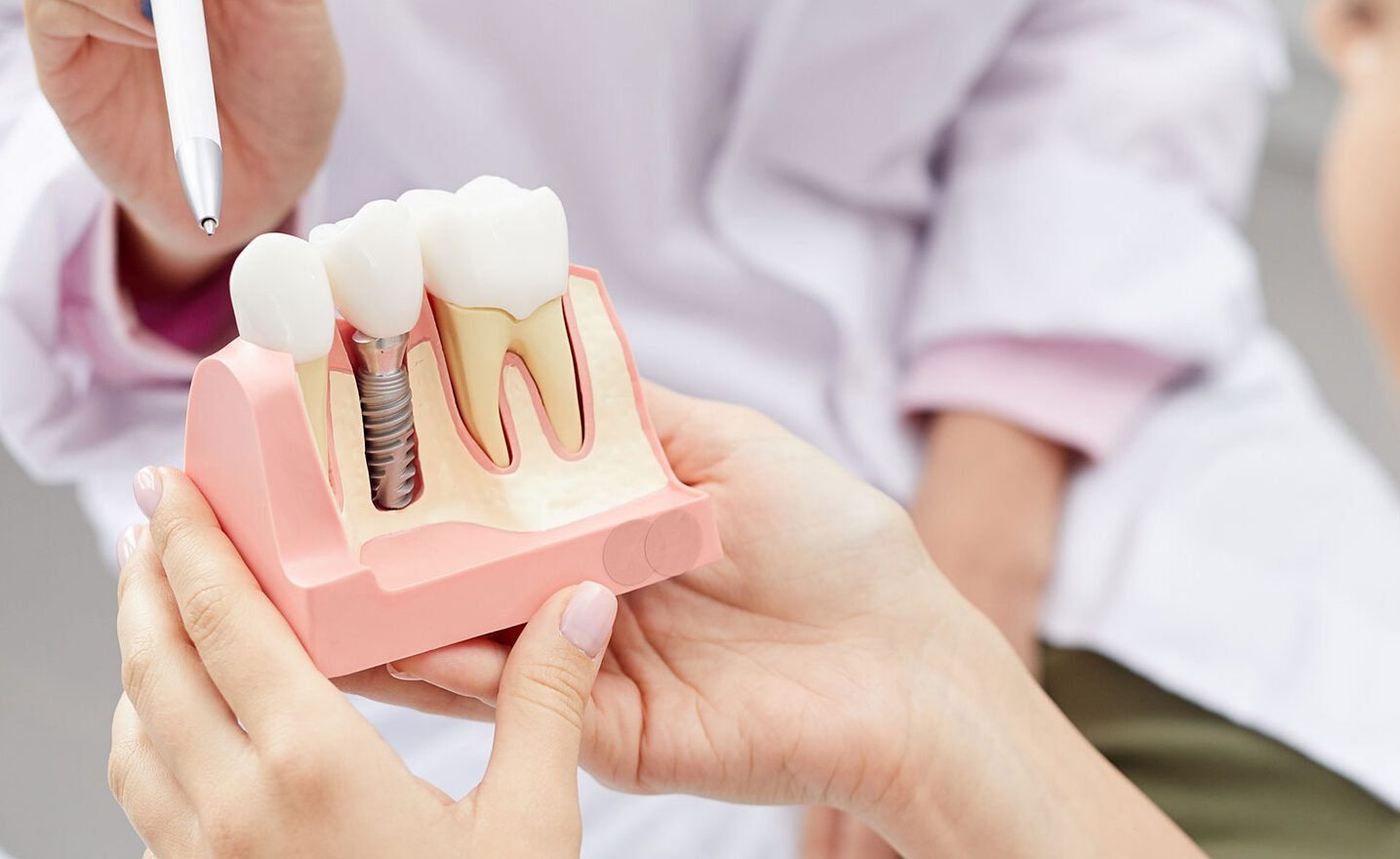What is Dental Implant?
Missing tooth can cause discomfort in patients in terms of health and aesthetics. For such cases, implant treatment has become frequently preferred with the advancing technology and updated treatment approaches.
Implant operation is the method of placing screws, mostly made of titanium, into the jawbone, which is used to correct missing teeth. These screws are available in different specifications and types. Depending on the patient’s condition and demand, the specialist should evaluate the situation and suggest the most appropriate solution to the patient. After the implant operation, which is a surgical procedure, a dental prosthesis is placed on the screws in order to restore the appearance and function of the teeth in the mouth.
The most important advantage of the implant, which distinguishes it from other alternative treatments, is that the adjacent teeth are not cut as in the bridge application, so the adjacent teeth are not damaged. In addition, unlike the bridge application, since the implant acts as a tooth root, it ensures that the power is transmitted to the tooth roots and jawbone in a balanced way. Therefore, possible diseases such as gum diseases and bone problems are prevented in this way.
Who can benefit from implant operations?
Do implants stay in the mouth for a lifetime?
Although the implant is a titanium alloy screw, the surrounding tissues are your jawbone and gingiva. If you do your routine checks, your doctor’s recommendations and your daily oral care after the implant treatment, you can use it for a long time in a healthy way. Otherwise, you may cause damage to your implants due to the disease of your tissues.
Is implant operation painful?
The biggest fear of most patients is to feel pain during the procedure. When implant application is performed by a specialist physician, it is usually easier, painless and completed in a short time than tooth extraction.
How long after the implant is applied, the prosthetic crowns are loaded?
In traditional implant systems, a waiting period of 3 (three) months is recommended after the implant application in order to ensure fusion with the bone. However, with the developing technology, it is possible to insert the teeth without waiting for this period.
Is only porcelain crowns applied on implants?
Systems produced from more aesthetic and durable materials than porcelain, such as zirconium, can be applied on the implants. The best decision for you can be made by reaching a consensus after the examination by your doctor.





